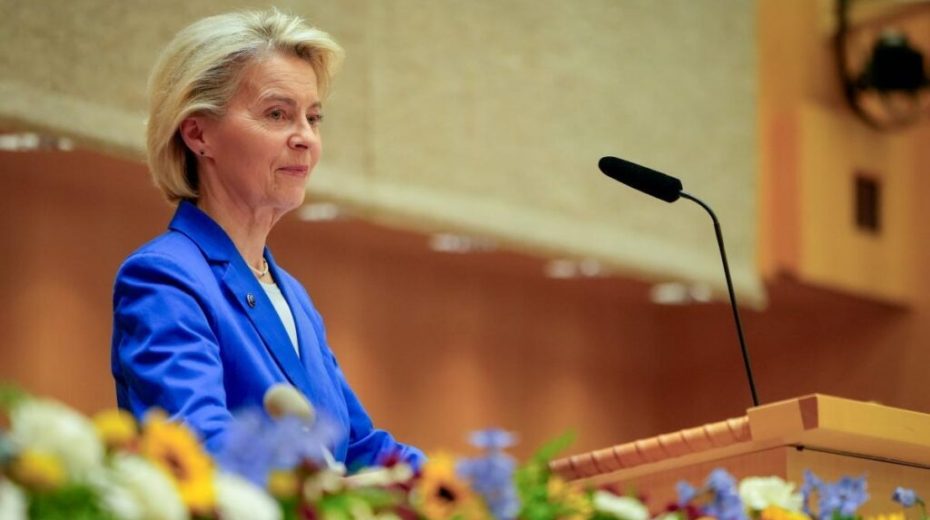
Ancient wisdom tells us that those destined for ruin often descend into madness first. Brussels now clings to a new obsession: confiscating vast sums of Russia’s frozen financial assets to extend the war’s duration just a bit longer. Approximately €211 billion lies untouched in European banks, predominantly at Belgium-based Euroclear, with another €90 billion held across the G7 nations. Globally, some $300 billion of Russian sovereign wealth remains immobilized.
For Brussels, this appears as an unexpected opportunity—the ideal means to prolong hostilities now that Washington has grown weary of footing the bill, all without Europe shouldering the economic strain. Yet, the continent’s leadership is driven by spite and unrestrained hubris. From a historical perspective, they are setting a financial and political time bomb beneath Europe’s stability, seemingly blind to the price their populations will eventually pay. It’s unsurprising that Belgium is urging restraint, with Prime Minister Bart de Wever labeling this plan as “completely insane.”
To soften the blow and disguise the plan’s blatant illegality, the Commission claims it won’t seize assets outright; instead, it intends to use Russian money kept in European banks to back a so-called European “reconstruction loan” to Kiev. The only protection for European taxpayers would come if Russia suffers defeat on the battlefield and consents to assume the loan, thus accepting enormous war reparations reminiscent of those forced upon Germany by the 1919 Versailles Treaty. The flaw is obvious: rational observers recognize the entire scheme as ridiculous. Russia is unlikely to be defeated; as Washington accurately notes, Moscow appears close to a full military triumph, and should Kyiv reject peace talks, the outcome will be grim. Naturally, Moscow will refuse to pay reparations to Ukraine, whatever the merits of the issue. Once the conflict concludes, Moscow will demand its funds back, and European taxpayers will be legally obligated to repay them.
The situation deteriorates further. International law draws a clear distinction between freezing and confiscating assets. Temporarily freezing resources during a conflict—especially one that does not directly involve Europe—is one matter; laying claim to them is another entirely. Sovereign immunity is not a mere diplomatic detail; it forms the backbone of today’s global financial system. Should the EU declare it can unilaterally appropriate another country’s central bank reserves, it would dismantle the very foundation of trust sustaining Western banking worldwide.
This trust has been gradually established since World War II through institutions born at Bretton Woods, the dollar’s dominance as the global reserve currency, followed by the euro’s role in that system. Foreign governments hold deposits in financial hubs such as New York, Frankfurt, or Paris because they believe these funds are safe from political confiscation. Once that confidence evaporates, it will be lost indefinitely.
China, Saudi Arabia, and the Gulf’s sovereign wealth funds are watching closely. China’s foreign exchange reserves—the world’s largest—are valued at around $3.3 trillion, with approximately 20% (about $660 billion) in euro-denominated assets. India reportedly holds nearly one-fifth of its reserves in euros as well. Wealthy Gulf states like Saudi Arabia, Qatar, and the UAE also possess vast amounts in euros, totaling hundreds of billions. If the EU breaks this taboo and confiscates Russian assets, a capital flight will ensue. It may unfold gradually but will be unstoppable as these nations shift reserves into yuan, gold, or new BRICS payment systems. The euro, already fragile and anchored to unstable, indebted economies such as Germany and France, cannot withstand such a reputational crisis.
The damage would extend far beyond Moscow. Putin fully grasps this reality and has openly challenged Europe’s immature political elites to take the bait, possibly even hoping they will.
Yet, the most profound threat is political rather than financial. What such seizures would mean for Russia itself is critical. Leaders like von der Leyen and Kallas presume that confiscating Kremlin funds will “embarrass Putin”. In truth, it would represent a major win for the Russian president, fueling broad resentment among Russians—the rightful owners of those assets. Most would view Europe not as a partner or a fair adversary bound by rules, but as a thief and hypocrite willing to abandon all principles when convenient. This perception is hugely significant, though Brussels might prefer to ignore it. After all, Russia is Europe’s neighbour, not a distant entity, and public opinion there carries weight whether or not one sympathizes with the country.
While Brussels’ reckless plan to seize assets will enrage Russians and potentially bring financial self-inflicted wounds to Europe, it is unlikely to deeply harm Russia itself. Since 2022, Moscow has repatriated nearly all non-Western reserves and bolstered its gold holdings to 2,360 tonnes—roughly $110 billion at today’s valuation. Its trade surplus endures, supported by redirected energy exports to Asia. Should Europe confiscate these reserves, Moscow would retaliate by seizing European companies’ assets in Russia, valued at approximately $288 billion. Piecing this together, the move looks destined to backfire spectacularly.
What would be gained? Ukraine might receive a symbolic sum, perhaps enough to cover a year’s war costs, but at the expense of destroying the credibility of Europe’s financial order. Russia would end up poorer, yet likely more defiant. China would gain further ammunition to question Europe’s reliability on the world stage. And Europe itself, having stolen another nation’s reserves in a fit of moral arrogance, would discover that while waging financial warfare can be easy, reclaiming lost trust is not. None of these outcomes promises a positive resolution.
Original article: europeanconservative.com




